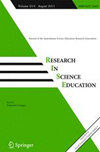Research In Science EducationSCIESSCI
国际简称:RES SCI EDUC 参考译名:科学教育研究
- 基本信息:
- ISSN:0157-244X
- E-ISSN:1573-1898
- 是否OA:未开放
- 是否预警:否
- TOP期刊:否
- 出版信息:
- 出版地区:NETHERLANDS
- 出版商:Springer Nature
- 出版语言:English
- 出版周期:6 issues per year
- 出版年份:1970
- 研究方向:EDUCATION & EDUCATIONAL RESEARCH
- 评价信息:
- 影响因子:2.2
- CiteScore指数:6.4
- SJR指数:1.045
- SNIP指数:1.731
- 发文数据:
- Gold OA文章占比:29.32%
- 研究类文章占比:100.00%
- 年发文量:52
- 自引率:0.0869...
- 开源占比:0.2225
- 出版撤稿占比:0
- 出版国人文章占比:0.04
- OA被引用占比:0.5388...
英文简介Research In Science Education期刊介绍
2020 Five-Year Impact Factor: 4.021
2020 Impact Factor: 5.439
Ranking: 107/1319 (Education) – Scopus
2020 CiteScore 34.7 – Scopus
Research in Science Education (RISE ) is highly regarded and widely recognised as a leading international journal for the promotion of scholarly science education research that is of interest to a wide readership.
RISE publishes scholarly work that promotes science education research in all contexts and at all levels of education. This intention is aligned with the goals of Australasian Science Education Research Association (ASERA), the association connected with the journal.
You should consider submitting your manscript to RISE if your research:
Examines contexts such as early childhood, primary, secondary, tertiary, workplace, and informal learning as they relate to science education; and
Advances our knowledge in science education research rather than reproducing what we already know.
RISE will consider scholarly works that explore areas such as STEM, health, environment, cognitive science, neuroscience, psychology and higher education where science education is forefronted.
The scholarly works of interest published within RISE reflect and speak to a diversity of opinions, approaches and contexts. Additionally, the journal’s editorial team welcomes a diversity of form in relation to science education-focused submissions. With this in mind, RISE seeks to publish empirical research papers.
Empircal contributions are:
Theoretically or conceptually grounded;
Relevant to science education theory and practice;
Highlight limitations of the study; and
Identify possible future research opportunities.
From time to time, we commission independent reviewers to undertake book reviews of recent monographs, edited collections and/or textbooks.
Before you submit your manuscript to RISE, please consider the following checklist. Your paper is:
No longer than 6000 words, including references.
Sufficiently proof read to ensure strong grammar, syntax, coherence and good readability;
Explicitly stating the significant and/or innovative contribution to the body of knowledge in your field in science education;
Internationalised in the sense that your work has relevance beyond your context to a broader audience; and
Making a contribution to the ongoing conversation by engaging substantively with prior research published in RISE.
While we encourage authors to submit papers to a maximum length of 6000 words, in rare cases where the authors make a persuasive case that a work makes a highly significant original contribution to knowledge in science education, the editors may choose to publish longer works.
期刊简介Research In Science Education期刊介绍
《Research In Science Education》自1970出版以来,是一本教育学优秀杂志。致力于发表原创科学研究结果,并为教育学各个领域的原创研究提供一个展示平台,以促进教育学领域的的进步。该刊鼓励先进的、清晰的阐述,从广泛的视角提供当前感兴趣的研究主题的新见解,或审查多年来某个重要领域的所有重要发展。该期刊特色在于及时报道教育学领域的最新进展和新发现新突破等。该刊近一年未被列入预警期刊名单,目前已被权威数据库SCIE、SSCI收录,得到了广泛的认可。
该期刊投稿重要关注点:
Cite Score数据(2024年最新版)Research In Science Education Cite Score数据
- CiteScore:6.4
- SJR:1.045
- SNIP:1.731
| 学科类别 | 分区 | 排名 | 百分位 |
| 大类:Social Sciences 小类:Education | Q1 | 165 / 1543 |
89% |
CiteScore 是由Elsevier(爱思唯尔)推出的另一种评价期刊影响力的文献计量指标。反映出一家期刊近期发表论文的年篇均引用次数。CiteScore以Scopus数据库中收集的引文为基础,针对的是前四年发表的论文的引文。CiteScore的意义在于,它可以为学术界提供一种新的、更全面、更客观地评价期刊影响力的方法,而不仅仅是通过影响因子(IF)这一单一指标来评价。
中科院SCI分区Research In Science Education 中科院分区
| 大类学科 | 分区 | 小类学科 | 分区 |
| 教育学 | 3区 | EDUCATION & EDUCATIONAL RESEARCH 教育学和教育研究 | 3区 |
中科院分区表 是以客观数据为基础,运用科学计量学方法对国际、国内学术期刊依据影响力进行等级划分的期刊评价标准。它为我国科研、教育机构的管理人员、科研工作者提供了一份评价国际学术期刊影响力的参考数据,得到了全国各地高校、科研机构的广泛认可。
中科院分区表 将所有期刊按照一定指标划分为1区、2区、3区、4区四个层次,类似于“优、良、及格”等。最开始,这个分区只是为了方便图书管理及图书情报领域的研究和期刊评估。之后中科院分区逐步发展成为了一种评价学术期刊质量的重要工具。
JCR分区Research In Science Education JCR分区
| 按JIF指标学科分区 | 收录子集 | 分区 | 排名 | 百分位 |
| 学科:EDUCATION & EDUCATIONAL RESEARCH | SSCI | Q1 | 169 / 756 |
77.7% |
| 按JCI指标学科分区 | 收录子集 | 分区 | 排名 | 百分位 |
| 学科:EDUCATION & EDUCATIONAL RESEARCH | SSCI | Q1 | 154 / 756 |
79.7% |
JCR分区的优势在于它可以帮助读者对学术文献质量进行评估。不同学科的文章引用量可能存在较大的差异,此时单独依靠影响因子(IF)评价期刊的质量可能是存在一定问题的。因此,JCR将期刊按照学科门类和影响因子分为不同的分区,这样读者可以根据自己的研究领域和需求选择合适的期刊。
发文数据
- 国家/地区数量
- USA95
- Australia53
- GERMANY (FED REP GER)22
- Turkey20
- England19
- CHINA MAINLAND17
- Spain17
- Canada15
- Sweden15
- South Africa11
本刊中国学者近年发表论文
-
1、Assessment of Context-Based Chemistry Problem-Solving Skills: Test Design and Results from Ninth-Grade Students
Author: Chi, Shaohui; Wang, Zuhao; Liu, Xiufeng
Journal: RESEARCH IN SCIENCE EDUCATION. 2023; Vol. 53, Issue 2, pp. 295-318. DOI: 10.1007/s11165-022-10056-8
-
2、Negotiation of Epistemological Understandings and Teaching Practices Between Primary Teachers and Scientists about Artificial Intelligence in Professional Development
Author: Dai, Yun
Journal: RESEARCH IN SCIENCE EDUCATION. 2023; Vol. 53, Issue 3, pp. 577-591. DOI: 10.1007/s11165-022-10072-8
-
3、Kindergarten Directors' Perceptions and Implementation of STEM Education
Author: Wu, Zhenhua; Huang, Li'an
Journal: RESEARCH IN SCIENCE EDUCATION. 2023; Vol. , Issue , pp. -. DOI: 10.1007/s11165-023-10105-w
-
4、Disciplinary Learning Motivation and Its External Influencing Factors: Taking Physics in a Selection Crisis as an example
Author: Jian-Xin, Yao; Yu-Xuan, Xiang; Tian, Luo; Chu-Fan, Deng; Yu-Ying, Guo; Fortus, David
Journal: RESEARCH IN SCIENCE EDUCATION. 2023; Vol. , Issue , pp. -. DOI: 10.1007/s11165-023-10112-x
投稿常见问题
-
请问这本期刊属于什么级别呢?可用于职称评定吗?
一般刊物只分省级、部级、核心,期刊本身是没有几类划分的,具体是几类或者几级,您可以对照单位的分类文件确认一下。Research In Science Education杂志是由Springer Nature出版的一本SCIE、SSCI,可用于职称评定。
-
你们能够提供哪些核心期刊的咨询服务?
大多数核心期刊我们都是可以提供咨询服务的。目前核心期刊主要分为以下几类:1.国内核心:按照权威度排序,社科类:南大核心>南大扩展>北大核心>科技核心 按照权威度排序。工科类:CSCD C库>CSCD E库(相当于CSCD扩展)>北大核心>科技核心。2.国外核心(全英文):按照权威度排序为:SSCI=SCI>EI>ISTP=CPCI。
-
想快速发表,可以加急吗?
为了确保您的职称评定顺利进行,我们建议提前半年到一年开始准备,这样能够保证有充足的时间来处理所有相关事宜。如果客户需要加急服务,我们会与杂志社进行沟通,以确定是否可以提供加急服务。请注意,如果确认可以加急,可能会收取一定的加急费用。
-
你们提供的服务可以确保稿件被发表吗?
期刊编辑会综合考虑多个因素,如发表范围、学术价值和原创性等,对稿件进行综合评估。尽管任何机构均无法保证每篇稿件都会被发表,但我们可以用专业知识和丰富经验,协助您理解并遵循期刊的发表要求,从而提高您的稿件被发表的机率。
-
请问期刊发表的费用如何?
期刊发表的费用因期刊不同而异。根据您的需求,我们会为您推荐性价比最高的期刊,并提供专业的期刊供您选择。一般来说,只要符合职称要求,大多数作者都会选择性价比最高的期刊作为意向期刊进行重点咨询。我们会为您提供详细的期刊信息和费用说明,以确保您能够做出明智的选择。
-
如果稿件被拒,未能成功发表,费用是否可以退还?
一般来说,我们推荐的期刊和您的专业方向、文章情况都是匹配的,极少出现稿件被拒的情况。如果稿件被拒,期刊编辑会提供详细的拒稿信和建议,以帮助您了解拒稿原因并改进您的稿件。关于退款政策,具体情况可能因期刊不同而异,请您咨询我们的工作人员以获取详细信息。
相关期刊推荐
-
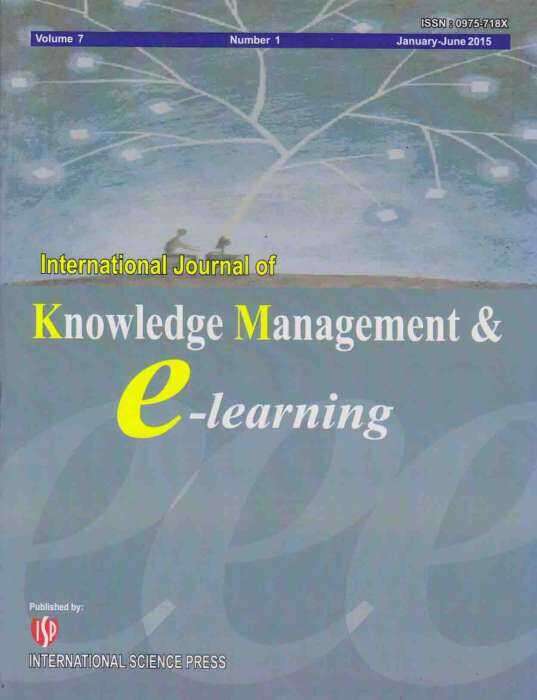
Knowledge Management & E-learning-an International Journal
中科院 4区 JCR Q1
大类:教育学
-
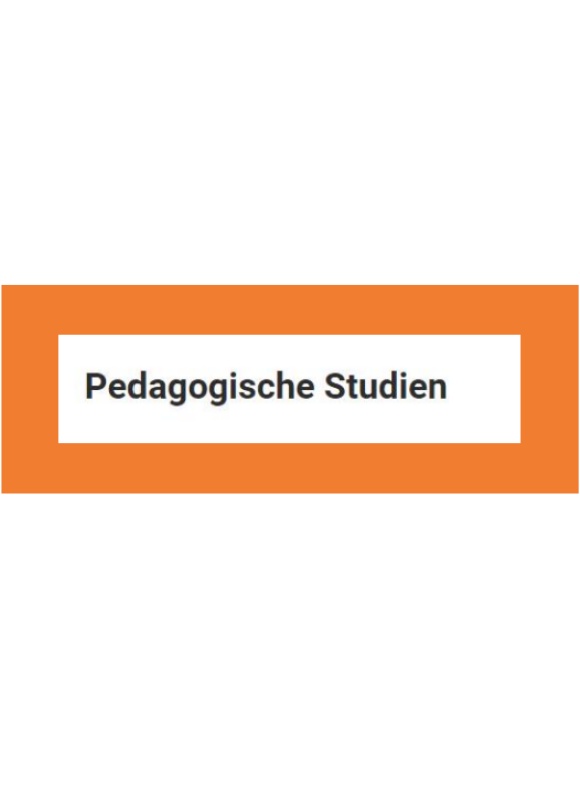
Pedagogische Studien
中科院 4区 JCR Q4
大类:教育学
-
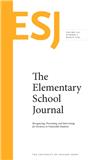
Elementary School Journal
中科院 4区 JCR Q2
大类:教育学
-
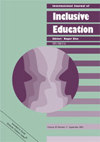
International Journal Of Inclusive Education
中科院 3区 JCR Q2
大类:教育学
-
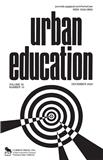
Urban Education
中科院 2区 JCR Q2
大类:教育学
-
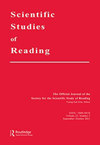
Scientific Studies Of Reading
中科院 2区 JCR Q1
大类:教育学
热门期刊推荐
-
International Journal Of Educational Development
中科院 3区 JCR Q1
-
Studies In Educational Evaluation
中科院 2区 JCR Q1
-
International Journal Of Educational Technology In Higher Education
中科院 1区 JCR Q1
-
Education And Information Technologies
中科院 2区 JCR Q1
-
Educational Review
中科院 3区 JCR Q1
-
Asia Pacific Journal Of Education
中科院 4区 JCR Q2
-
British Educational Research Journal
中科院 3区 JCR Q1
-
Asia Pacific Education Review
中科院 3区 JCR Q1
